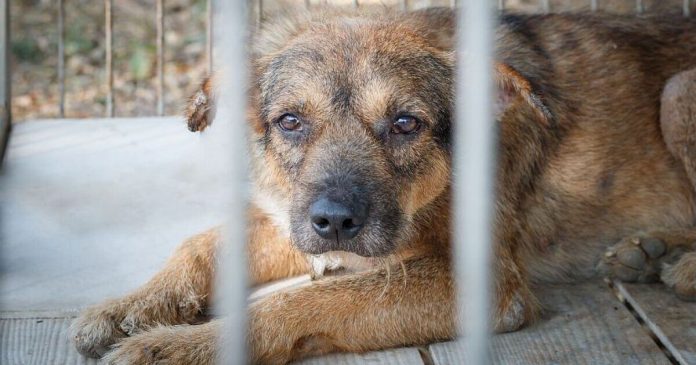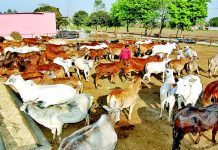This article is written by Aryan, from the School of Law, Christ University. This is an exhaustive article that seeks to explore the regulation of wet markets in different countries with a particular emphasis on improving sanitation and hygiene in wet markets.
Table of Contents
Introduction
The term wet markets first emerged in the 1970s. Wet markets are public marketplaces that sell perishable goods like meat, fish often in an open air-setting. Various wet markets also slaughter animals on sight including chicken, fish and other domesticated animals. However, few of the wet markets also have a wild animals section where live animals like snakes, baby crocodiles and beavers are sold. This term was used to distinguish open markets from air-conditioned supermarkets. Although all wet markets do not deal with wild animals, those markets that deal with them have contributed significantly to the spread of zoonotic illnesses like SARS, monkeypox and COVID-19 as most of the wet markets fail to comply with sanitation and hygiene conditions.
This article explores the regulation of wet markets in various countries throughout the world with the primary focus on improving sanitation and hygiene at wet markets. It also discusses whether a permanent ban on wet markets can be beneficial in the long run. In addition to sanitation laws, the article also discusses laws on free and sustainable trade with an aim to eradicate illicit trafficking. Furthermore, certain recommendations are made for improving the enforcement of national and international regulations to ensure that these markets have no harmful consequences. Lastly, this article explores the fact that despite having so many rules, the number of endangered species continues to grow.
Wild animal wet markets : an insight
Wet markets are large facilities consisting of open-air stalls selling perishable goods such as fish, meat, vegetables, fruits and other food items. The term “wet” mainly refers to wet floors caused by the washing of perishable goods, or the melting of ice used to protect meat or meat-related goods from rotting and keeping the items fresh. Wet markets are prevalent in parts of Asia and Africa, and are the most prominent source of meat in parts of China, Japan, Mexico, Indonesia, and parts of Africa. Wet markets and other types of local markets serve as a platform for the supply of meat from both domestic and wild animals. This industry is believed to be responsible for dwindling animal populations and potential viral outbreaks such as avian influenza, bird flu, swine flu and many others as they operate in open-air conditions, in close vicinity and with no health or sanitation safeguards. In fact, there is strong evidence that coronavirus originated at live animal marketplaces or wet markets in Wuhan, China. Many wet markets engage in live slaughtering of animals, which involves keeping animals in unsanitary and cramped conditions for extended periods of time. In such circumstances, the spread of viruses can be facilitated, and this was also suspected to be the primary reason for the spread of Covid-19 in the first place. In cases related to respiratory diseases, it is possible for these viral pathogens to spread to customers or food handlers caused by animal’s bodily fluids.
There is sufficient evidence to suggest that urbanization has increased demand for wildlife products because urban inhabitants pay relatively higher prices for such products in these markets. In some Asian countries particularly China, Japan, Indonesia, and Thailand it is believed that consuming certain species of wild animals can enhance a person’s strength, even though it also carries a considerable risk for the transmission of zoonotic diseases. As wild animals interact with different species from time to time, it is clear that such interactions may enhance the spread of zoonotic infections, and wet markets serve as perfect locations for the transmission of diseases like SARS, MERS, Ebola and Covid-19 being the most recent one. These instances have repeatedly called for government actions to regulate such markets. In the past, even the World Health Organisation (hereinafter referred to as WHO) has urged countries to stop the sale of wild animals in wet markets, to avoid the spread of deadly diseases. The WHO has enacted various guidelines regarding prohibitions on trading, sale and consumption of wild animals, but these guidelines have been implemented haphazardly. Therefore, adequate public health rules must be followed and wet markets must operate in accordance with government directions, otherwise, diseases will continue to emerge and rapidly spread in the future.
Limitations of wet market laws in China
The term wet market was unfamiliar to the majority of people around the world, but the coronavirus outbreak has brought it to the spotlight. Covid-19 is believed to have originated in a wet market in Wuhan, China called the Huanan Seafood Market. China has been the epicentre of wet markets throughout the world.
Wildlife protection laws and wet markets
There are wildlife protection laws in China that explicitly ban hunting and trading certain endangered species. Article 26 of the China Wildlife Law Regulation governs the breeding of wild species protected by the state. The government enforces penalties on anyone planning to breed wildlife without following proper norms such as ensuring that they have adequate living areas and facilities in accordance with the animal’s habits and necessary conditions for the movement, reproduction, sanitation, and health of animals. Such people shall also make sure that they adhere to all technical measures and norms like licenses for trade to ensure that wildlife is not exploited.
Sanitary norms imposed on wet markets
In 2003, the Chinese government enacted State Food and Drug Administration, currently known as National Medical Products Administration mandating wet markets to follow sanitary norms, which included the distance between two stores to be more than 5 meters, and regular inspection of such markets by the Chinese Health Authority. Additionally, these guidelines ensured wet markets to be regularly inspected by the Health Authority and must adhere to the Animal Epidemic Prevention Law. Furthermore, Article 27 of Laws governing People’s Republic of China states that supervision of sanitary production in handling of food shall be carried out by relevant health authorities, which includes veterinary examinations by relevant fishery, animal husbandry or agricultural authorities. However, despite such laws, wet markets in China are exceptionally unclean and operate in proximity thereby posing a greater danger of creating unsafe conditions in which viruses can pass from animals to humans. These conditions led to the Covid outbreak which resulted in the closure of wet markets across the country.
Trade of wild animals banned
In response to Covid-19, the Chinese Government banned the trade of wild animals for food, but within a month almost ninety percent of China’s wet markets started operating. The simple reason is that wet markets provide enormous revenue for the government, as they are a daily stop for Chinese people providing delicacies derived from wild animals and for their medicinal properties. Hence, the government avoids enforcing tighter regulations on such prohibitions.
Traders frequently engage in illicit trading of vulnerable species like pangolins, bluefin tuna, Chinese giant salamanders, and yellow-breasted buntings for their meat, skin, and medicinal uses despite various laws restricting the trade of such species. The Protection of Wildlife under the People’s Republic of China states that wild animals are state property and are protected by China’s list of Fauna under the Special State Protection. Any trader convicted of illegally trafficking wild or endangered animals on the list can face a conviction of up to fifteen years, with a fine and forfeiture of property. However, such regulations have not been executed effectively as illicit trafficking has increased and a rising number of species have been classified as endangered or vulnerable. It is now time for the Chinese Government to start mandating more stringent laws and guaranteeing their effective implementation throughout the country.
Laws governing Indian wet markets
Similar to China, India has a plethora of wet markets. West Bengal is considered the primary centre for the trade of India’s wet markets, with turtles being the most common one. However, India’s condition is distinct from China, as it lacks sufficient legislature governing wet markets. The Wildlife Protection Act, 1972 protects endangered species, enlisting them as state properties, and prohibits illegal purchase and sale of these animals. Additionally, the Food Safety and Standards Authority of India (hereinafter referred to as FSSAI) regulates licensing of all kinds of food enterprises including registration of all food businesses as well as the issuance of proper licencing to carry out any food-related operation in a hygienic manner. The effect of such a law was the closure of illegal slaughterhouses and butcher shops in India that failed to comply with the FSSAI’s sanitation standards. The law further permits the slaughtering of only fish, poultry, goats, pigs and sheep.
The Prevention of Cruelty to Animals, Rules 2001 states that a veterinarian must confirm that the animal is in a fit state to be slaughtered. Section 407 of the Delhi Municipal Corporation Act, 1957 also specifies that an animal may only be slaughtered at a certified slaughterhouse, and killing of animals at a separate location is strictly prohibited as per the Rules.
Despite such stringent rules, there is a deficiency in the implementation of such rules. As per the report of the Comptroller and Auditor General of India(CAG), it has been found that in almost half of the cases in various states, licenses were issued to enterprises carrying incomplete documents. A report of the Supreme Court also stated that many slaughterhouses in the country operate without a license and even licensed slaughterhouses in many states do not follow the requisite guidelines set forth by FSSAI. Furthermore, illicit trafficking of illegal and endangered species like pangolins, turtles etc are still carried out in many states.
The on-ground implementation of these rules are lacking. It is speculated that almost 90 percent of state food laboratories throughout the country entrusted with food testing and certification were ill-equipped as well as did not have the National Accreditation Board for Testing and Calibration Laboratories (NABL). Additionally, even the FSSAI has no evidence to claim that all the notified food laboratories have well-qualified food analysts. Therefore, authorities that are primarily responsible for protecting public health shall start taking their role seriously, noncompliance of which would otherwise have a significant impact on the health of individuals. Therefore, there needs to be proper coordination between the relevant agencies and government ministries. Since businesses related to wet markets will be carried out notwithstanding the conditions, strict implementation of the guidelines shall be followed as animal-based food businesses can surely give rise to another zoonotic outbreak in the coming future.
Regulating provisions : a sneak peek
The Covid-19 pandemic has demonstrated that human health is indirectly linked with animal health, as about seventy per cent of viral infections diagnosed in people have been connected to wild animals in some manner. Most East and South-East Asian countries, particularly China and Indonesia, despite being parties to several international conventions have continuously disobeyed international norms regarding the trade of illicit and endangered species. Although the International Union for Conservation of Nature (hereinafter referred to as IUCN) has recognized all eight species of pangolins to be on the verge of extinction, the pangolin continues to be the most trafficked animal in the world. These practices have been condemned worldwide and as per the recent World Health Organisation (WHO) report, almost 70 percent of wild animals are responsible for infectious diseases in humans. In addition to that, there is no way to determine whether these animals are virus-infected or not. Such actions have led global leaders including the United Nations (hereinafter referred to as UN) to call for a permanent ban on all wet markets, stating that the risk to human health is too great and the only way out is to impose a permanent ban on worldwide wet markets.
A permanent solution to the issue of wild wet markets
Even though various leaders around the world including the UN biodiversity Chief Murma called for a permanent ban on wet markets there are several complications associated with the ban. Wet markets have been a part of the tradition for East Asian and African nations, and it regulates almost 30-60 percent of their food. A complete ban on the wet markets can lead to the emergence of the black market and considering the vast numbers of farmers and consumers involved, this can create even greater complications in the global food market, even worse than what we are experiencing today.
According to the United Nations Environment Programme (hereinafter referred to as UNEP), the risk of zoonotic illness arising out of wild animals is more as viruses arising from them are the ones humans have not developed immunity against, and therefore legislation governing their trade must be implemented. However, several low-income groups, significantly in Africa, have relied on wild animals for their livelihood, and such a ban can have a significant impact on their livelihoods. They can be forced to seek an alternate means of income. Therefore, a complete ban is not the permanent solution. Countries should make laws concerning safe and sustainable trade such that transmissions of such diseases can be managed effectively.
Regulations carried out by different nations
Regulations carried out in Zambia
To ensure safe and sustainable trade, it is imperative that strict sanitary requirements along with restrictions for wild and domestic animals are properly imposed, as wildlife and domesticated animals are somehow equally responsible for the spread of zoonotic diseases. In countries like Zambia, all forms of animal meat, whether wild or domesticated, are classified as meat. The statute also gives authority to the minister to regulate the trading of meat nationally as well as internationally. Such authorities directly regulate the sale of meat in markets, and strictly adhere to sanitation requirements for all types of animals. However, since such legislations have a partial approach, they fail to address the control of zoonotic diseases.
Regulations in Sierra Leone
In some other countries like Sierra Leone, all kinds of animals are included under wildlife by the Wildlife Conservation Act, 1972, and sales of animal meat are regulated as per the respective Minister’s orders stipulated in Section 37 of the Wildlife Conservation Act, 1972.
Regulations in Botswana
In Botswana, the designated minister has the authority to adopt laws requiring livestock to be tested and analyzed for the presence of microorganisms, antimicrobial agents, or other pesticide-containing chemicals. Additionally, the designated minister can also prescribe standards for the quality and grades of meat, as well as direct the methods of storing and transporting meat to be used by the consumers. Even Argentina has proper laws regulating the trade of wild animals including inspection of products along with essential sanitation conditions associated with the trade. Such regulations, particularly legislations carried out by Botswana and Argentina can definitely help in reducing zoonotic illness to some extent.
Apart from strict trade and sanitation laws, countries must have proper food laws for better control of the zoonotic disease. Food laws are comparable to animal health laws in terms of application, as well as enforcement procedures. Such laws are important to analyze the sale of wildlife and control of zoonotic disease. Each country has its own set of guidelines regarding food laws based on geography, local practices and demography, with the intent to include animals fit for consumption. The food laws in countries like Antigua and Barbuda explicitly exclude the consumption of dogs, birds, turtles and cats. Similarly, countries like Mauritius ban the consumption of endangered species and only include wildlife that is consumed by human beings.
Scope for reform
It is apparent that markets that sell live animals, and especially wild species pose the biggest threat to human health as most of the zoonotic illness arises from them. Lawmakers have to confine themselves to regulating laws especially upon the hygiene, consumption and trade of such wild species, or else diseases like Covid 19 will continue to spread throughout the world. Despite the existence of legislation regulating wet markets, it is very difficult to regulate them due to the impossibility of monitoring each vendor’s compliance with the rules.
Raising consumer awareness of the regulations coupled with coordinated efforts from Non-Government Organisations can result in more effective enforcement of such laws. Consumers must be required to follow social distancing norms, and the competent authority shall make efforts to confirm the same. Vendors at wet markets shall also follow all the rules related to food safety standards and sanitary requirements. Each stall must have access to basic sanitation with each product being sanitized carefully. Furthermore, stalls must be set at an adequate distance from the other which must be mandated by the competent authority. Additionally, regular inspections by the appropriate authority must be conducted to ensure that the vendors comply with such regulations.
With regard to trade and consumption of wild animals like pangolins, bats, bluefin tuna, and many others, a global law enforcement system can be made, which can cooperate with regional law enforcement organizations (law enforcement for each nation) to address the issue of illicit trading of wildlife. However, such regulations are not easy to determine because evidence from some nations suggests that even illegal products eventually end up in legal markets. Investigators have concluded that the majority of the illegally trafficked wildlife ends up in legal marketplaces.Therefore, greater attention must be given to tracking such activities. Furthermore, since most of these trades occur through ports particularly in free trade zones in Asia, proper surveillance and investigation of such ports must be held at regular intervals. Finally, the competent authority shall grant harsher punishments to individuals engaging in such illicit trade deterring the commission of such crimes in the future.
Conclusion
It is evident that a blanket ban on wild and live wet markets is not a long-term answer, and may even worsen the problem, similar to the case following the SARS outbreak. It is also clear that there are sufficient national as well as international laws governing such regulations, the authorities simply lack competent enforcement of such laws. International organizations including the WHO stated that COVID-19 and all previous pandemics have occurred as a result of inadequate sanitation and improper healthcare in wild animal wet markets and have called for proper implementation of such regulations time again.
One issue associated with such implementation is that not all vendors are well equipped to buy sanitisers due to economic backwardness and lack of support from the government. Since it is assertive that proper sanitation will reduce the impact of zoonotic illness to a great extent, it is imperative that the government and other agencies support these people, as even a slightly negligent act in even one of the stalls can result in another pandemic.
References
- https://bnwjournal.com/2020/12/11/regulation-of-wild-animals-wet-markets/
- https://www.ncbi.nlm.nih.gov/pmc/articles/PMC7832206/
- https://observatoryihr.org/news/un-biodiversity-chief-calls-for-a-global-ban-on-wet-markets-to-prevent-future-pandemics/
- https://www.epw.in/engage/article/wet-markets-and-food-laws-india-what-needed-ensure-safety-hygiene
- https://www.vox.com/future-perfect/2020/4/15/21219222/coronavirus-china-ban-wet-markets-reopening
- https://www.thelancet.com/journals/lanplh/article/PIIS2542-5196(21)00112-1/fulltext?rss=yes
- https://www.firstpost.com/india/ups-crackdown-on-slaughterhouses-butchers-farmers-and-traders-suffer-as-big-businesses-gain-3815457.html
- https://www.unep.org/news-and-stories/story/guidan
- https://edition.cnn.com/2020/04/14/asia/china-wet-market-coronavirus-intl-hnk/index.html
- http://www.fao.org/faolex/results/details/en/c/LEX-FAOC163735/
- https://www.princeton.edu/news/2021/06/11/better-understanding-wet-markets-key-safeguarding-human-health-and-biodiversity
LawSikho has created a telegram group for exchanging legal knowledge, referrals and various opportunities. You can click on this link and join:
https://t.me/joinchat/J_0YrBa4IBSHdpuTfQO_sA
Follow us on Instagram and subscribe to our YouTube channel for more amazing legal content.
 Serato DJ Crack 2025Serato DJ PRO Crack
Serato DJ Crack 2025Serato DJ PRO Crack











 Allow notifications
Allow notifications


